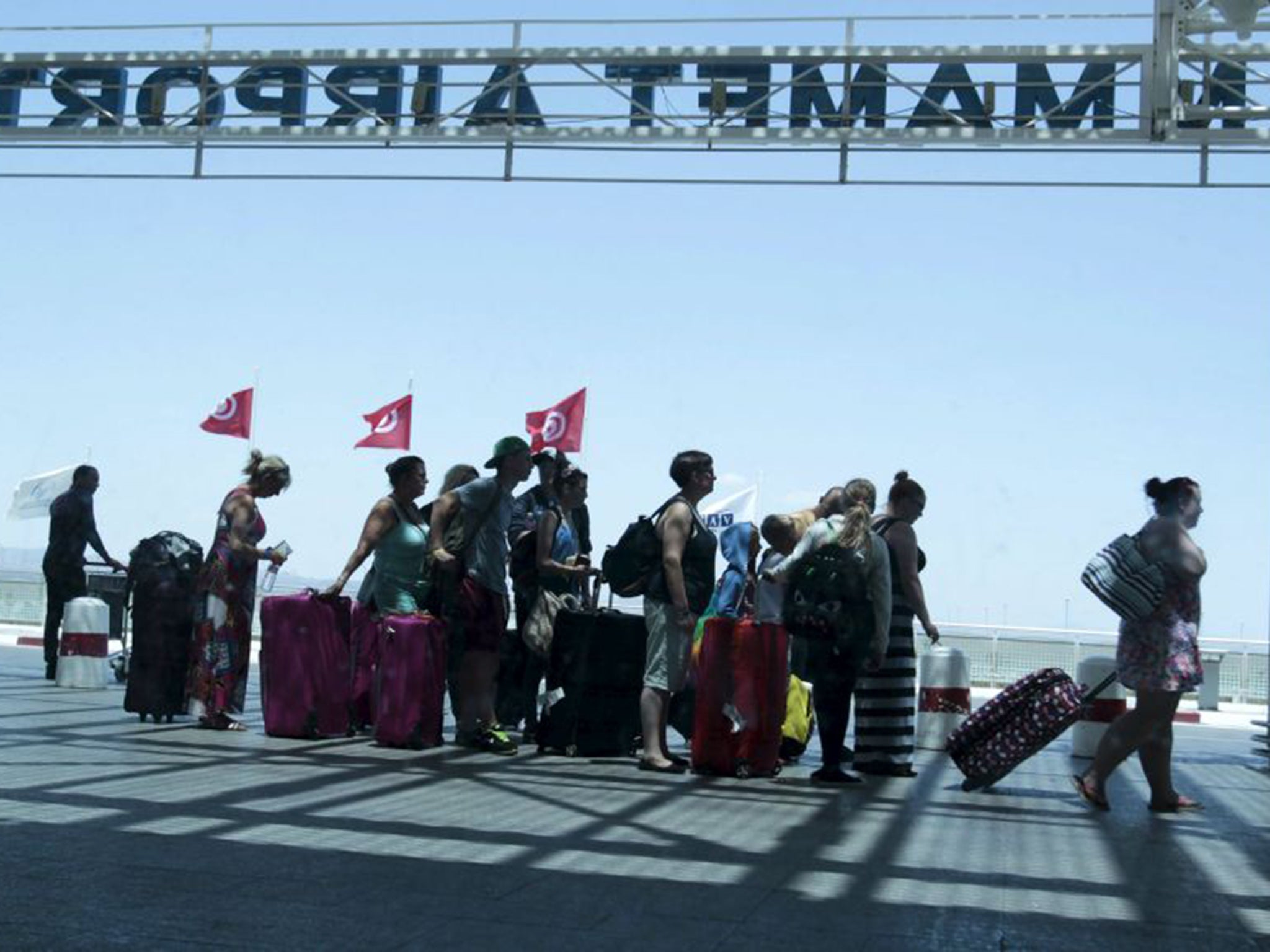Tunisia hotel attacks: Government warns of more potential threats to tourists - but stops short of ordering evacuation
Foreign Office update will have been greeted with relief by Tunisia's fragile tourist industry

“Further terrorist attacks in Tunisia, including in tourist resorts, are possible”. So warned the Foreign Office late on Saturday night, in the first significant change to its travel advice for British tourists since the massacre in the resort of Sousse on Friday.
But the intricately worded official advice stops short of putting Tunisia on the government’s holiday blacklist.
A Foreign Office warning against travel to a nation compels tour operators to evacuate existing holidaymakers and not to send anyone else until the advice changes. It also invalidates the travel insurance of people who ignore the official advice and go there anyway.
Designating Tunisia as a “no-go” destination would have triggered an evacuation of the estimated 20,000 British tourists still in the North African nation, and effectively ended mass tourism to Tunisia for the remainder of the summer.
In the hours following Friday’s attack, the Foreign Office issued what was effectively a holding statement. It acknowledged the atrocity, but did not significantly change the advice.
There had been speculation that the Foreign Office would quickly place Tunisia on the no-go list and coordinate an immediate evacuation - after consultation with the travel industry to ensure planes and personnel were in place.
But late on Saturday, the Foreign Office issued an update that will have been greeted with relief by Tunisia’s fragile tourist industry. It begins: “Further terrorist attacks in Tunisia, including in tourist resorts, are possible, including by individuals who are unknown to the authorities, and whose actions are inspired by terrorist groups via social media.”
Tunisia borders Libya, where there is an ongoing conflict and an absence of security, and where Islamist terrorist groups operate. The border is porous.
The next section emphasises that the UK government’s travel advice “is based on objective assessments, drawing on expert sources of information available to the government including intelligence, local knowledge, and experience of our overseas staff.”
In other words: “We believe it is safe to travel to Tunisia, despite the appalling events there.”
On 18 March terrorists attacked the Bardo Museum on the outskirts of Tunis. Twenty one tourists were killed, including a British national. The official travel advice did not substantially change.
Subscribe to Independent Premium to bookmark this article
Want to bookmark your favourite articles and stories to read or reference later? Start your Independent Premium subscription today.

Join our commenting forum
Join thought-provoking conversations, follow other Independent readers and see their replies